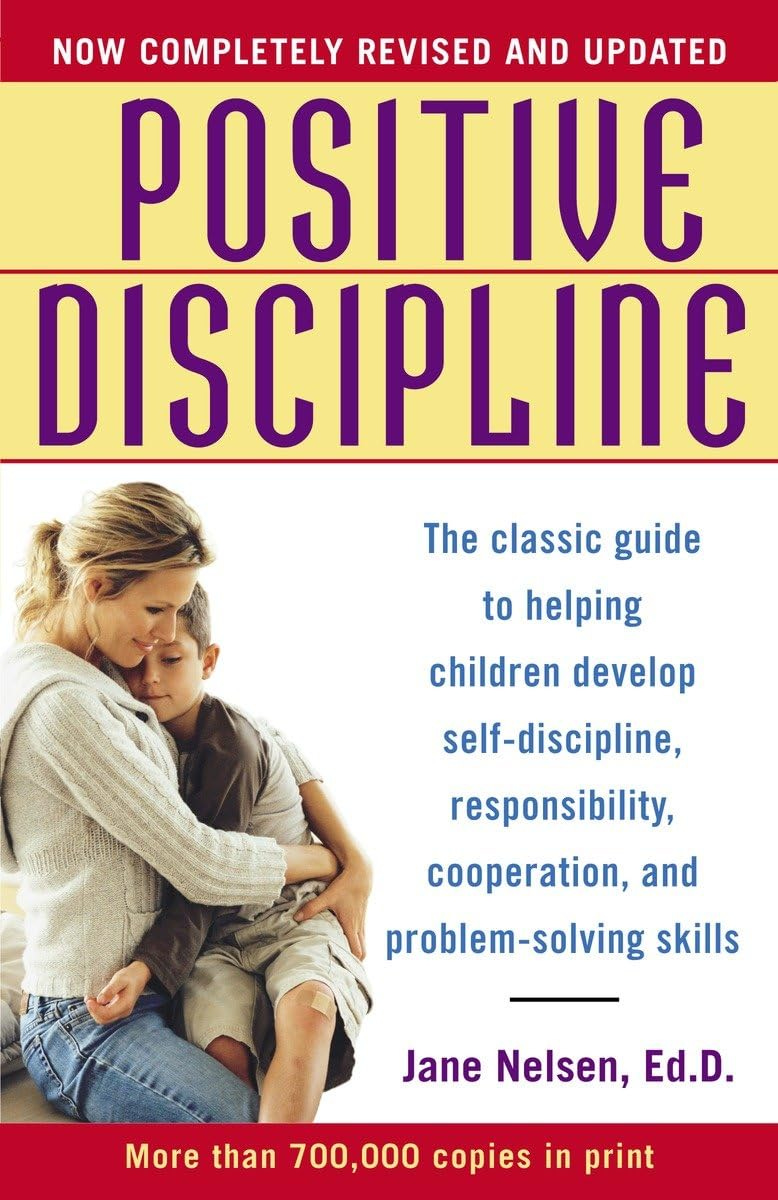Positive Discipline
Unlocking Parenting Wisdom: Exploring the Power of “Positive Discipline”
Good morning, everyone! I am Tom Niklas, a seasoned writer and reviewer, and I am delighted to have the opportunity today to share with you my reading experience of the bestselling parenting book <Positive Discipline>.
Dr. Jane Nelsen points out in her work <Positive Discipline>: “If you feel pain in the process of disciplining your child, then your method must be wrong.” This sentence deeply moved me, because it accurately points out the dilemma faced by many parents in parenting — when we use the wrong discipline methods, we often feel pain and anxiety.
So what is the right parenting approach? <Positive Discipline> provides the answer: being kind yet firm. It advocates taking a parenting approach that is both gentle and principled, providing children with appropriate restraint and guidance while expressing love. This parenting approach does not intimidate children like authoritarianism, nor makes children out of control like permissiveness, but is based on mutual respect.
Why are today’s children no longer as obedient as before? <Positive Discipline> gives two reasons:
First, parents no longer set an example of obedience to authority. In the past, father’s word was law; now mothers are also fighting for equality. Seeing the changes in adult relationships, children no longer assume that they should obey their parents by default.
Second, children lack opportunities to learn a sense of responsibility and motivation. In the past, children had to work to survive. But now society satisfies children’s material needs while depriving them of opportunities to experience self-reliance.
To reverse this situation, we need to cultivate children’s sense of responsibility and self-confidence by providing them with opportunities to make meaningful contributions. We also need to understand that neither excessive strictness nor excessive permissiveness works. Only in an atmosphere of kindness and firmness can children grow in a healthy manner.
As the book says, punishing children usually only has short-term effects. It does not cultivate a sense of social responsibility and positive thinking. On the contrary, these children are more prone to develop feelings of rebellion, revenge, and withdrawal. Therefore, we must be wary of discipline methods that seem to work and consider their long-term impact.
<Positive Discipline> strongly advocates treating children with love, not punishment. It helps establish mutual respect and inspires children to voluntarily learn responsible behavior. I am determined to remember that the purpose of discipline should be to help children grow in a healthy way, not to correct their mistakes.
As the book says, we need to focus on feelings, not just behaviors themselves. The same action, without empathy, will lead to completely different consequences. For example, asking a child to clean up spilled milk, the tone can be “kind yet firm”, so the child will feel respected; or the tone can be blaming, so the child will feel punished.
We also need to learn the four steps for winning cooperation: understand the child’s feelings, communicate sympathy, express our own feelings, and find solutions together. When children feel understood, they are also more willing to accept our perspective and cooperate with us.
In addition, we need to make children feel useful instead of doing everything for them. We need to take time to train children in household chores instead of doing it faster ourselves and depriving them of learning opportunities. Mistakes are not shameful but opportunities to learn. When I treat children’s mistakes with tolerance and encouragement, our relationship can be strengthened.
We must also always remember to treat children with love. Once an angry mother confronted her daughter about hiding beer. This only caused distance and opposition between them. Later this mother changed her strategy, first expressing understanding and care, then sharing her thoughts, so that the two could truly communicate and find solutions together.
We all make mistakes in life, but the <Positive Discipline> methods gave me the courage to face my own imperfections and learn from mistakes. I will remember that attitude is more important than behavior. I will let children feel loved.
The book also discusses the influence of birth order on children’s personalities. As different children in the family, they will have different self-understanding and make different choices to distinguish themselves.
For example, the eldest child may be very perfectionistic, wanting to be first; the youngest may become spoiled and demanding to be served. We should not simply label children according to birth order, but use it to understand each child’s unique perspective.
The eldest is usually responsible, critical, wanting control. Only children may be like either the eldest or youngest, depending on whether they were pampered or given responsibility. Youngest children are often spoiled and become dependent on others serving them.
However, birth order is not the only determinant of personality. The atmosphere of the family is also very important. Cooperative families reduce differences between children. There are also other factors that break the norms of birth order, such as gender, age gaps between siblings, children spontaneously changing roles, and so on.
Keep reading with a 7-day free trial
Subscribe to ReadVault to keep reading this post and get 7 days of free access to the full post archives.



